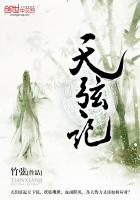The middle of the last century was marked by many incidents which have left a permanent impress upon politics in general and upon the slavery question in particular.Europe was again in the throes of popular uprisings.New constitutions were adopted in France, Switzerland, Prussia, and Austria.Reactions in favor of autocracy in Austria and Germany sent multitudes of lovers of liberty to America.Kossuth, the Hungarian revolutionist, electrified American audiences by his appeals on behalf of the downtrodden in Europe.Already the world was growing smaller.
America did not stop at the Pacific but crossed the ocean to establish permanent political and commercial relations with Japan and China.
The industries of the country were being reorganized to meet new conditions created by recent inventions.The electric telegraph was just coming into use, giving rise to a new era in communication.The discovery of gold in California in 1848 was followed by competing projects to construct railroads to the Pacific with Chicago and St.Louis as the rival eastern terminals.The telegraph, the railway, and the resulting industrial development proved great nationalizing influences.
They served also to give increased emphasis to the contrast between the industries of the free and those of the slave States.
The Census of 1850 became an effective anti-slavery argument.
The telegraph also gave new life to the public press.The presidential campaign of 1848 was the last one in which it was possible to carry on contradictory arguments in support of the same candidate.If slavery could not endure the test of untrammeled discussion when there were no means of rapid intercommunication such as the telegraph supplied, how could it contend against the revelations of the daily press with the new type of reporter and interviewer which was now developed?
It is a remarkable coincidence that in the midst of the passing of the old and the coming in of the new order there should be a change in the political leadership of the country.Webster, Clay, Calhoun, John Quincy Adams, not to mention others, all died near the middle of the century, and their political power passed to younger men.Adams gave his blessing to a young friend and co-laborer, William H.Seward of New York, intimating that he expected him to do much to curb the threatening power of the slaveholding oligarchy; while Andrew Jackson, who died earlier, had already conferred a like distinction upon young Stephen A.
Douglas.There was no lack of aspirants for the fallen mantles.
John C.Calhoun continued almost to the day of his death to modify his interpretation of the Constitution in the interest of his section.As a young man he avowed protectionist principles.
Becoming convinced that slave labor was not suited to manufacture, he urged South Carolina to declare the protective tariff laws null and void within her limits.When his section seemed endangered by the distribution of anti-slavery literature through the mail, he extemporized a theory that each State had a right to pass statutes to protect itself in such an emergency, in which case it became the duty of the general Government and of all other States to respect such laws.When it finally appeared that the territory acquired from Mexico was likely to remain free, the same statesman made further discoveries.He found that Congress had no right to exclude slavery from any Territory belonging to the United States; that the owners of slaves had equal rights with the owners of other property; that neither Congress nor a territorial authority had any power to exclude slaves from a Territory.This doctrine was accepted by extremists in the South and was finally embodied in the Dred Scott decision of 1857.
Abolitionists had meantime evolved a precisely contradictory theory.They asserted that the Constitution gave no warrant for property in man, except as held under state laws; that with this exception ******* was guaranteed to all; that Congress had no more right to make a slave than it had to make a king; and that it was the duty of Congress to maintain ******* in all the Territories.Extremists expressed the view that all past acts whereby slavery had been extended were unconstitutional and therefore void.Between these extreme conflicting views was every imaginable grade of opinion.The prevailing view of opponents of slavery, however, was in harmony with their past conduct and maintained that Congress had complete control over slavery in the Territories.
When the Mexican territory was acquired, Stephen A.Douglas, as the experienced chairman of the Committee on Territories in the Senate, was already developing a theory respecting slavery in the Territories which was destined to play a leading part in the later crusade against slavery.Douglas was the most thoroughgoing of expansionists and would acknowledge no northern boundary on this side of the North Pole, no southern boundary nearer than Panama.He regarded the United States, with its great principle of local autonomy, as fitted to become eventually the United States of the whole world, while he held it to be an immediate duty to make it the United States of North America.As the son-in-law of a Southern planter in North Carolina, and as the father of sons who inherited slave property, Douglas, although born in Vermont, knew the South as did no other Northern statesman.He knew also the institution of slavery at first hand.As a pronounced expansionist and as the congressional leader in all matters pertaining to the Territories, he acquired detailed information as to the qualities of these new possessions, and he spoke, therefore, with a good degree of authority when he said, "If there was one inch of territory in the whole of our acquisitions from Mexico where slavery could exist, it was in the valleys of the Sacramento and the San Joaquin." But this region was at once preempted for ******* upon the discovery of gold.














